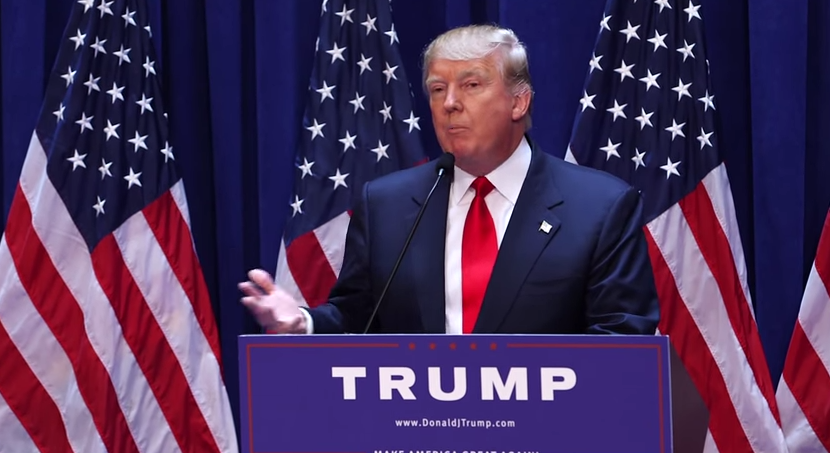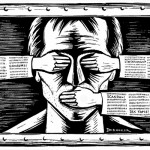“Who’d you really love? Girl I see through, through your love. Who do you love–me, or the thought of me?”–John Mayer, “I Don’t Trust Myself”
In writing up on the Bowdoin Christian Fellowship controversy, John Leo asks: “Is Religious Freedom Discriminatory?” Before I go any further, I want to draw attention to the way language can shape a debate. The word “discriminate” has evolved in our culture to take on an implied meaning not etymologically integral to the word itself. Looking up “discriminate” in the American Heritage Dictionary, one gets the following entry:
1. To make a clear distinction, differentiate.
2. To make distinctions on the basis of preference or prejudice.
When our society talks about discriminating or discrimination, we almost always mean #2. Yet if you look closely, you see an important difference between American Heritage’s two definitions of the same word: The first refers to what discriminating actually is, its essence. The second refers to a possible way of carrying out that essence. Currently, much of American law and social consciousness is concerned with preventing as much as possible unfair discrimination–in the workplace, in the public square, even at home. Yet if we take this dictionary entry seriously, we must admit one thing: Discrimination, in the sense provided by definition #1, is inevitable in a free and civil society.
People make distinctions and differentiate every day. The rules of logic are built on this. Yet the conflation of unjust, uncivil discrimination with saying “A is not non-A” has resulted in unsound thinking across our culture. Definition #2 is swallowing up #1 so that it becomes impossible to do the first without becoming guilty of the latter.
Bowdoin is a terrific example of this. I completely agree with Leo about the ridiculous and alarming decision by the school to revoke BCF’s status as a school sponsored group. He’s right on that it represents an “intrusion” by Bowdoin’s leadership. Yet arguing that BCF’s freedom is being infringed upon creates a tension.
John K. Wilson senses the tension and pounces:
John Leo at Minding the Campus discusses the issue of discriminatory policies by registered student organizations and claims, “religious groups should have absolute freedom in the process of picking their leaders.”
Actually, he doesn’t really believe that, because that’s what I believe. The whole argument over religious student groups is the demand by some that students should not have absolute freedom to choose their leaders. That’s the point. These groups want to have rules that limit the choice of students so that leaders are obligated to follow certain values. Absolute freedom is my position, not Leo’s.
Wilson’s point is well-taken: Someone’s freedom of choice has got to go. Either students cannot have absolute freedom in choosing which groups to join and run for leadership in, or student groups cannot have absolute freedom in choosing which people can lead. The two “absolute freedoms” cancel each other out.
Wilson continues by pointing out that conferring absolute authority on the “group” rather than “the student(s)” actually creates the very dilemma it wants to resolve.
Leo might claim that the key word here is “process.” He thinks students should have absolute freedom to restrict their freedom to pick leaders. That’s an odd kind of freedom. In the real world, national groups like the Christian Legal Society impose these restrictions on students as a condition of affiliation in order to exert control over the students, which isn’t exactly “absolutely freedom” for students. Beyond these philosophical problems of restricting the freedom of future generations of students to choose their own leaders, discriminatory rules have a fatal flaw in practice: someone must be trusted to enforce them.
The problem is that if you have a constitutional provision requiring religious discrimination, say that only Christians who obey the Bible can be leaders, then someone must enforce this. And I have never, despite many attempts, been able to get a straight answer from defenders of religious discrimination rules to this question: who gets to enforce these rules?
Wilson has done well to work Leo into a rhetorical corner. If Leo responds by saying that the existing leadership should choose standards and vote on them as leadership, then he’s admitted that student religious groups aren’t really about the students but about the leaders (in which case, Bowdoin didn’t violate the students’ religious liberty, but those of a few evangelical “leaders”). But if he says that the members of the group should draft and vote on standards, why does he think transferring authority from the few to the many is good in that instance but not in every instance?
But Wilson unwittingly illustrates how progressive definitions of inclusiveness often feature backwards logic. For Wilson, the core issue about the rights of the common student vs the rights of school-sanctioned group. It’s a classic case of Man vs the Institution (no doubt Wilson would agree with the Department of Justice that businesses are not people and therefore cannot have consciences that could be violated by, say, a contraceptive mandate). But to get to this conclusion requires the adoption a false premise. A student group is not necessarily less “studential” because it is a group. Groupings of students do not de-humanize students and infuse them with “groupness.” The BCF was a gathering of Bowdoin students, all with diverse views but most with common Christian convictions, that met to form relationships and encourage each other. Reading Wilson’s analysis gives the impression that his idea of an evangelical student group is a small, darkened room in which 5 or 6 people talk about how much they don’t like gay people. He seems to believe that the BCF was primarily about exclusion. But by all accounts, the BCF was an open, student-oriented and student-serving evangelical fellowship.
That means that Wilson is really just doing what he accuses Leo of doing: namely, coming down on one side’s rights instead of another. Here is the moment of truth for progressives: Do you really love freedom of conscience, or just the thought of it? Freedom of conscience explicitly features the ability of people to form fellowships based on shared identities. The BCF expanded that identity as broadly as they possibly could while remaining an evangelical group. What Wilson is reacting against is what progressives always react against in religious liberty scenarios: The potential for anyone to be excluded. Yet such exclusion is not only inevitable, it is why religious liberty exists at all. Diversity means difference. It is foolhardy to believe that a culture can celebrate diversity yet penalize college students for asserting their own diversity and carving out a fellowship for the enrichment of other students. Doctrine like religious liberty protects diversity by protecting its expression from populism.
Do progressives value freedom of conscience, or at-any-cost inclusion? The idea of a religiously tolerant culture is a romantic, Jeffersonian ideal. But the reality is not always ideal. Religious toleration is dirty work. It costs something to furnish a society of true diversity. Wilson understands this, but he thinks the cost is the power of religious student groups to control their identity. The BCF, though, was an expression of student diversity that was told to conform. Diversity eats diversity in the worldview of progressive inclusionism, which is why some progressives are rethinking the whole ideal. Again, the idea of diversity, or the reality of it–which do you prefer?











